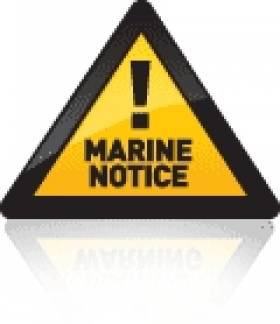Displaying items by tag: identification
#MarineNotice - The latest Marine Notice from the Department of Transport, Tourism and Sport (DTTAS) advises that the International Maritime Organisation (IMO) General Assembly, at its recently concluded 28th session, adopted Resolution A. 1078(28) which revokes Resolution A. 600(15) to extend application of the voluntary IMO Ship Identification Number Scheme to fishing vessels of 100 gross tons and above.
The IMO Ship Identification Number Scheme was introduced in 1987 through adoption of Resolution A. 600(15), as a measure to prevent maritime fraud and enhance safety and security. The IMO number is used throughout the maritime industry as the first point of reference in identifying a ship.
Resolution A. 1078(28) will benefit oversight of the International Convention on Standards of Training, Certification, and Watchkeeping for Fishing Vessel Personnel, which sets the certification and minimum training requirements for crews of seagoing fishing vessels.
It will further aid implementation of the international treaty on fishing vessel safety, known as the Cape Town Agreement, once it enters into force.
Additionally, the proposed amendment will broadly facilitate improved management of fisheries-related maritime activities by other United Nations agencies and national governments.
IHS Maritime, formerly known as IHS-Fairplay (IHS-F), is the originating source for IMO numbers and is responsible for assigning and validating them.
The IMO request that owners and builders of existing and new fishing vessels of 100 GT or more obtain an IMO number, free of charge, at www.imonumbers.ihs.com. Alternatively requests can be sent to IHS Maritime by post.
Contact details and more information about the new resolution are included in Marine Notice No 37 of 2014, a PDF of which is available to read or download HERE.
Body on Newry Beach Could Be That of Missing Kayaker
As previously reported on Afloat.ie, area man Mark McGowan, 37, was last seen kayaking in the lough at 7.30pm on Monday 10 October.
His blue kayak was spotted by the Irish Coast Guard on 11 October at Killowen Point, on the north side of the lough.
A cross-border search and rescue operation was immediately launched but progress was hampered due to bad weather.
The Belfast Telegraph reports that a body was discovered on Cranfield Beach near Newry by a member of the public yesterday morning. Formal identification of the body has not yet taken place.
At the time of his disappearance, McGowan was described as 5'7" tall, medium build, with a clean shaven, tanned complexion and short bleached blonde hair. He was last seen wearing a red jacket, blue jeans and white trainers.

























































